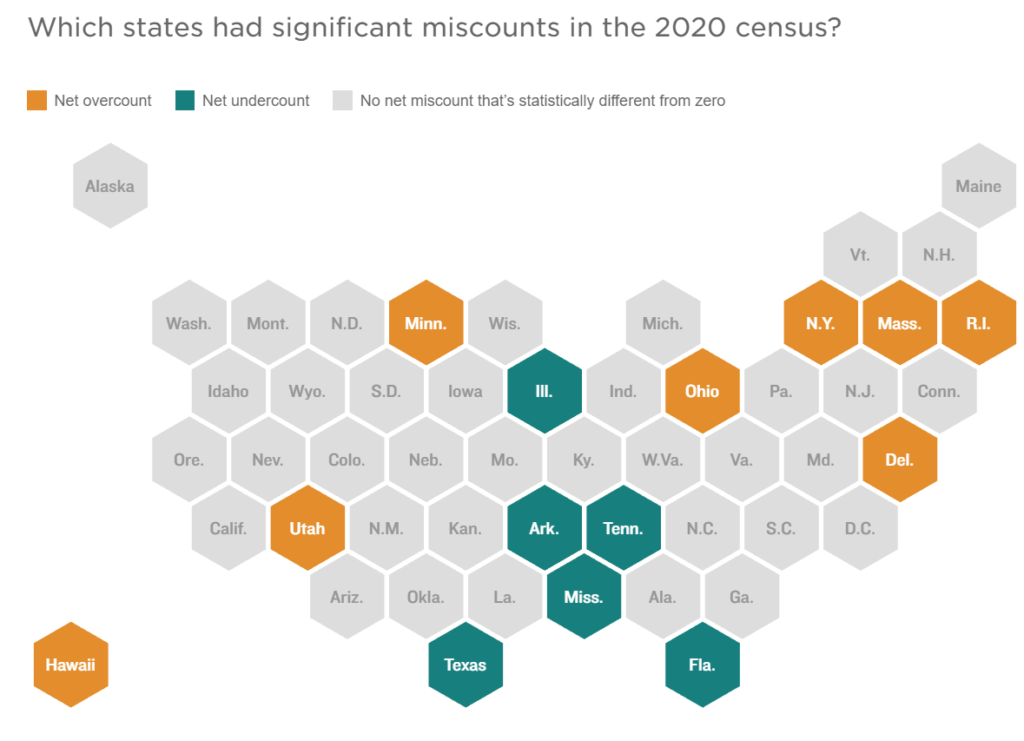
A follow-up survey conducted by the Bureau of Census to measure the accuracy of the 2020 Census count reveals that six states were undercounted, while eight states were overcounted.
The states with significant net undercount rates are: Arkansas (5.04%), Florida (3.48%), Illinois (1.97%), Mississippi (4.11%), Tennessee (4.78%) and Texas (1.92%). Meanwhile, the states which the Census overcounted the people with a significant net rate are: Delaware (5.45%), Hawaii (6.79%), Massachusetts (2.24%), Minnesota (3.84%), New York (3.44%), Ohio (1.49%), Rhode Island (5.05%) and Utah (2.59%).
Although there are miscounts, NPR noted:
During a press briefing on Wednesday, bureau officials emphasized the follow-up survey’s estimates, which were delayed largely because of the pandemic, will not change each state’s share of representation in the House or the Electoral College. Last year, the House clerk certified each state’s new share of House seats based on the 2020 population tallies.
The bureau, however, does plan to use these estimates from its Post-Enumeration Survey in planning for the 2020 census that is already underway.
To try to ameliorate the effects of the over- and undercounts, the bureau has set up an internal team that plans to research how to factor the follow-up survey’s results into the bureau’s population estimates, which, along with census data, help guide the distribution of an estimated $1.5 trillion a year in federal money to local communities.


